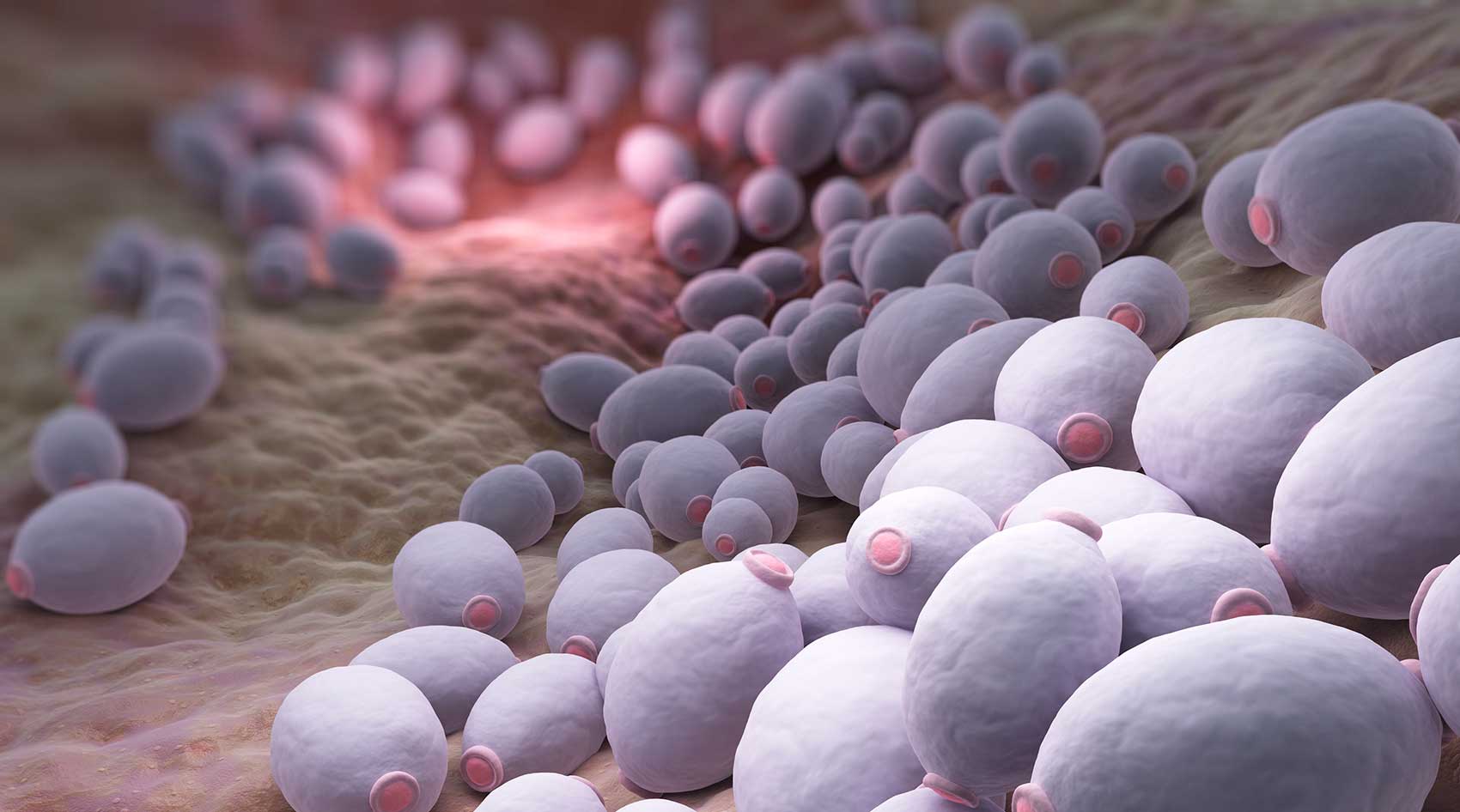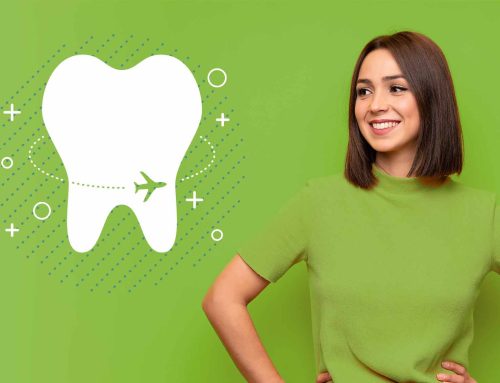Thrush is a mouth infection caused by an uncontrolled propagation of the fungus Candida albicans. That’s why this yeast infection is also known as oral candidiasis or moniliasis. Candida albicans is naturally present in the human body, including in the mouth, on the skin, in the gut microbiota (or gastrointestinal flora) and in the vagina, without causing any health concerns.
Symptoms of thrush
Thrush is characterized by the presence of a white coating with a creamy appearance on the insides of the cheeks, the gums, the palate, the tongue and the pharynx.
The first signs of thrush are inflammation of the mucous membranes lining the mouth, which become red and dry.
Other symptoms include the following:
- Sore throat, often severe
- Difficulty swallowing, including one’s own saliva
- Loss of taste
- Small red cracks at the corners of the lips
- Sensation of dryness or cottonmouth
- Pain inside the mouth
- Bad breath.
Causes of oral thrush
In healthy individuals, Candida albicans doesn’t cause any symptoms and is balanced out by the bacteria that are present in the body. However, in people who are at risk, the fungus multiplies abnormally, causing an imbalance in the flora as it accumulates in the mouth and throat, leading to an infection: thrush. Oral thrush is not a contagious disease.
The following people are most at risk:
- Babies
- Seniors
- People with conditions such as cancer or HIV/AIDS that weaken the immune system
- Denture wearers
- Patients in intensive care
- Women with vaginal infections
- Diabetics
- People with asthma
The primary causes of oral thrush are as follows:
- Prolonged use of antibiotics or corticosteroids
- Use of steroid inhalers
- Worn dentures
- Poor dental hygiene
Prevention and treatment
Physicians often treat thrush through the application of an antifungal cream or gel inside the mouth and on the tongue. This is supplemented by a liquid antifungal solution, which the patient uses to rinse out the mouth and then swallows.
On the other hand, if the infection hasn’t been treated in time or has spread to the esophagus, or if the local antifungal agent isn’t sufficient, the physician will prescribe an oral antifungal medication in the form of tablets.
You can take various precautions to prevent the recurrence of thrush:
- Keep your mouth clean at all times (brushing three times a day and after each meal)
- Rinse your mouth out well after using your steroid inhaler
- Replace your toothbrush regularly (especially after an infection)
- Limit your consumption of sugary foods
- Denture wearers should also do the following:
- Brush the prosthetic after each meal and let it dry completely before reinserting it
- Disinfect the prosthetic daily
Are you experiencing symptoms of thrush or would you like further information on the subject? Contact the team of specialists at Clinique Dentaire Charles Trottier. It would be their pleasure to take the time to answer all your questions.





